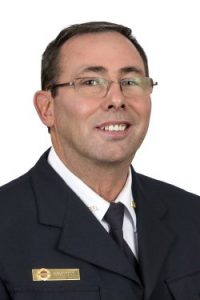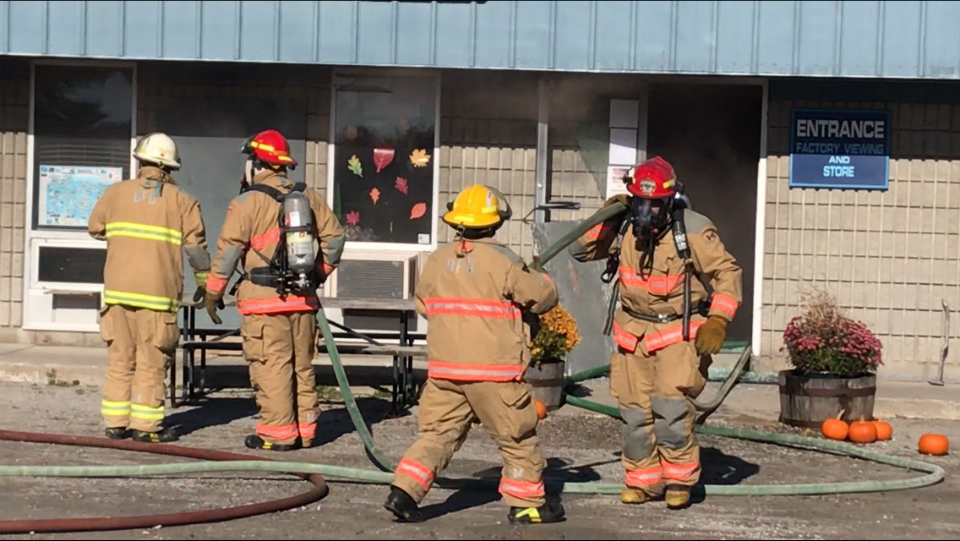New legislation could see the return of double-hatters at area fire halls.
Bill 57 was tabled by the Progressive Conservative government last week, and among other things, allows for the use of full-time firefighters to serve in local volunteer departments.
Full-time firefighters who also work as volunteers at a smaller fire department are known as double-hatters. The union representing firefighters went after some small departments near the Greater Toronto Area in the past decade, with those identified facing the loss of their full-time job if they did not quit their volunteer role.

Bracebridge Fire Chief Murray Medley has a 47 member all-volunteer squad, with two paid staff in supervisory positions. He does not have any double-hatters on his current roster and doesn’t see the need to do so any time soon.
“A lot of the guys that ended up in that situation started here and then applied for full-time positions at full-time departments,” says Medley. “They were kind of torn. They felt obligated to stay on and help us and they continued to live here.”
Labour Minister Laurie Scott touched on the issue of double-hatters at the August meeting of the Association of Municipalities of Ontario, where she signalled to mayors she was sympathetic to their concerns.
At issue was the International Association of Fire Fighters who wanted to get the part-time fire jobs also unionized, increasing the numbers of rank and file being organized. It would also increase the costs to towns running volunteer departments, to suddenly pay full-time salaries.
Volunteers still get paid, but only for some training and for any calls for service. The rest of the time, they are not on the clock.
At one point the union was bringing full-time firefighters in front of a tribunal and threatening to take their job away if they didn’t quit the volunteer role.
Medley says that was part of the reason his department stayed away from the practice.
“We didn’t want to get to a point where we had a large number because this was always in the background,” he admits. “You always knew that some volunteer departments could get targeted and they would just go to all your volunteers and say that’s it, you’re done.”
The excuse given by the union was to ensure part-timers did not get hurt on a volunteer job and impact the full-time department. Medley feels that was a thin excuse because no other activities in a firefighter’s off time were subject to the same rule.
“But it was interesting the fact that the only places they would target was volunteer fire departments,” offers Medley. “A lot of the guys there would start businesses of their own. So they would work their shifts and come up and they would have a full-time landscape business. They weren’t concerned about that but they were concerned about guys going and volunteering their services there.”
While Medley welcomes the potential change, it is not one that will have a noticeable effect on his department.
Bill 57 will urge arbitrators looking at firefighter salaries to consider things such as a collective agreement in the same municipality, along with other factors such as the economic health of a community, when setting a wage increase.



